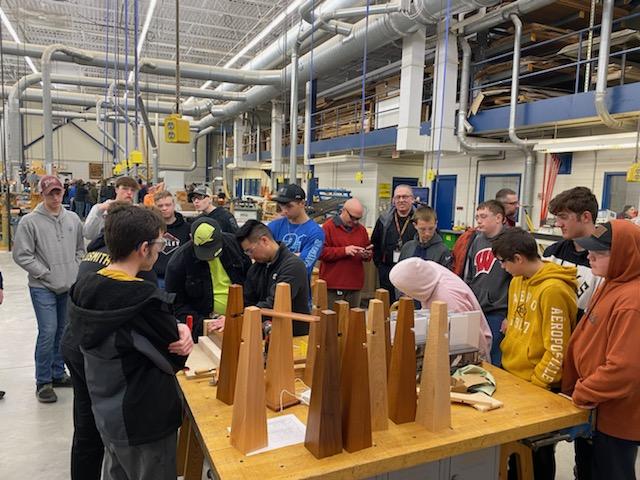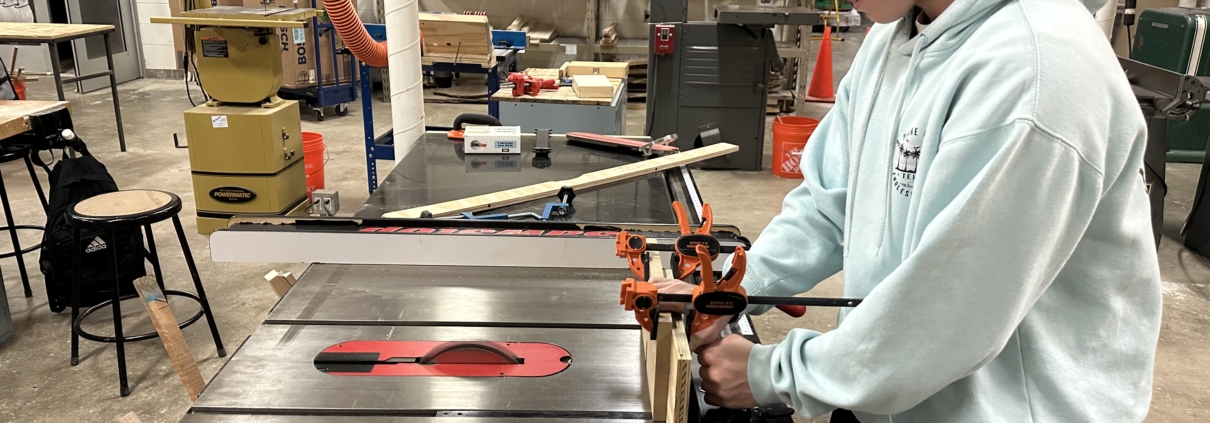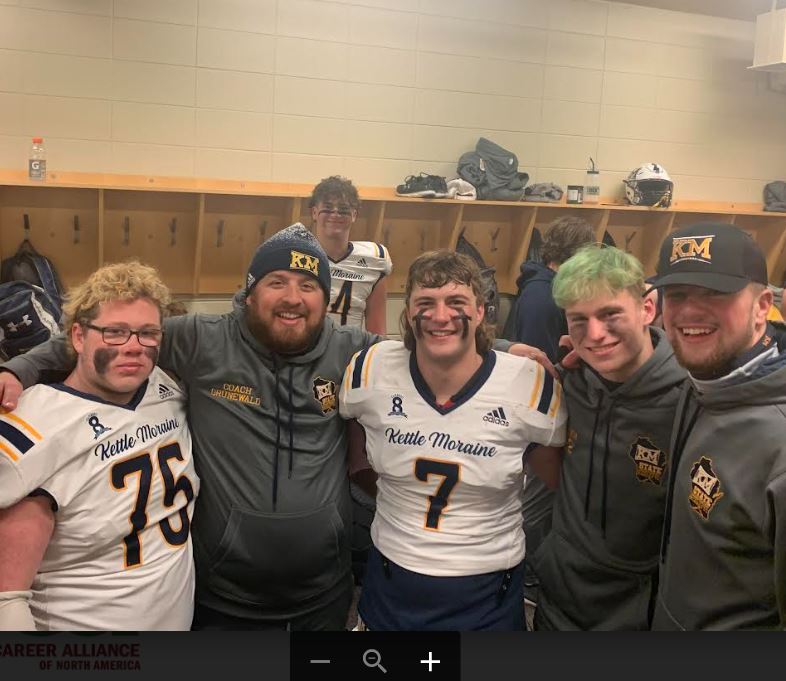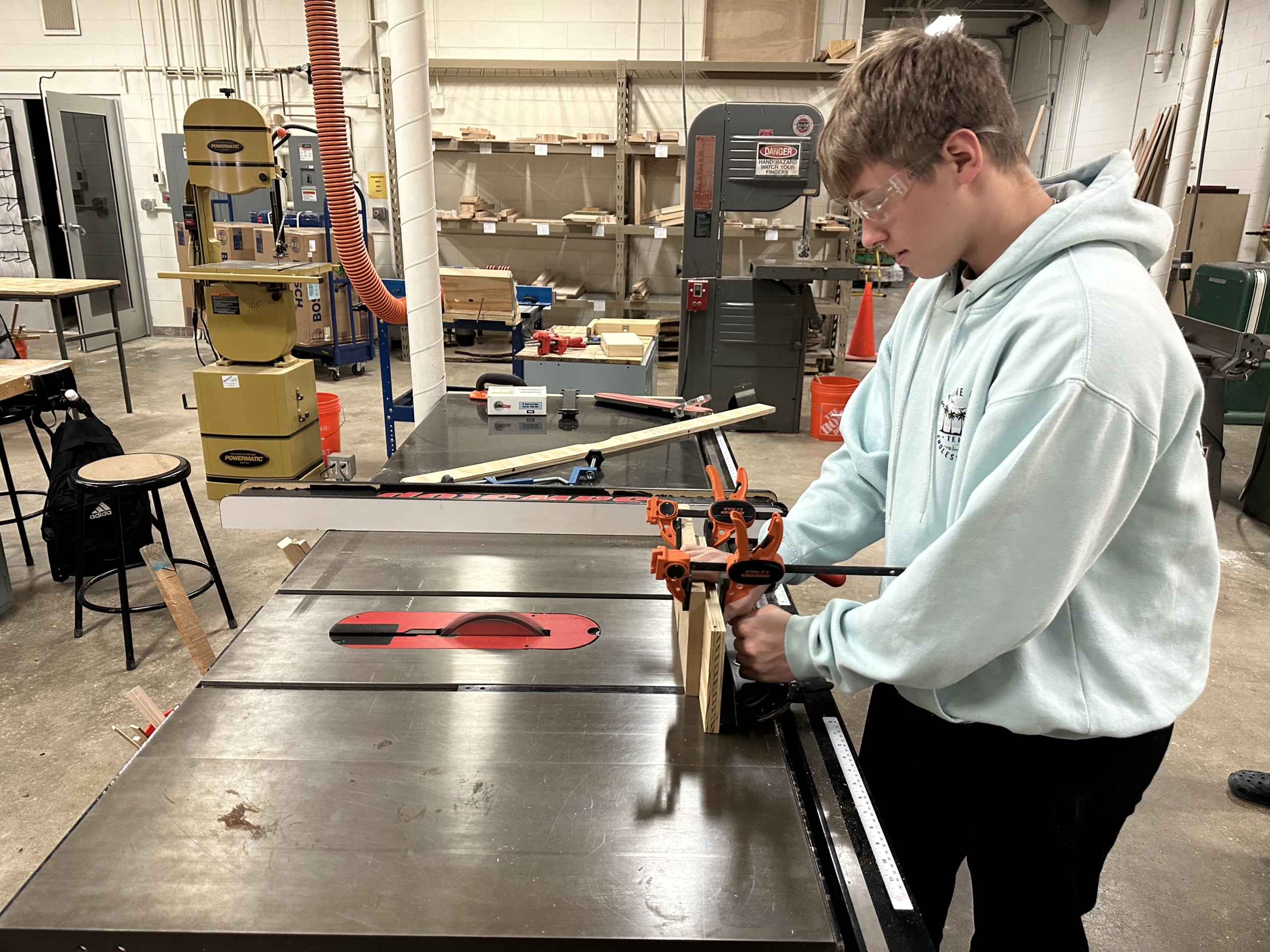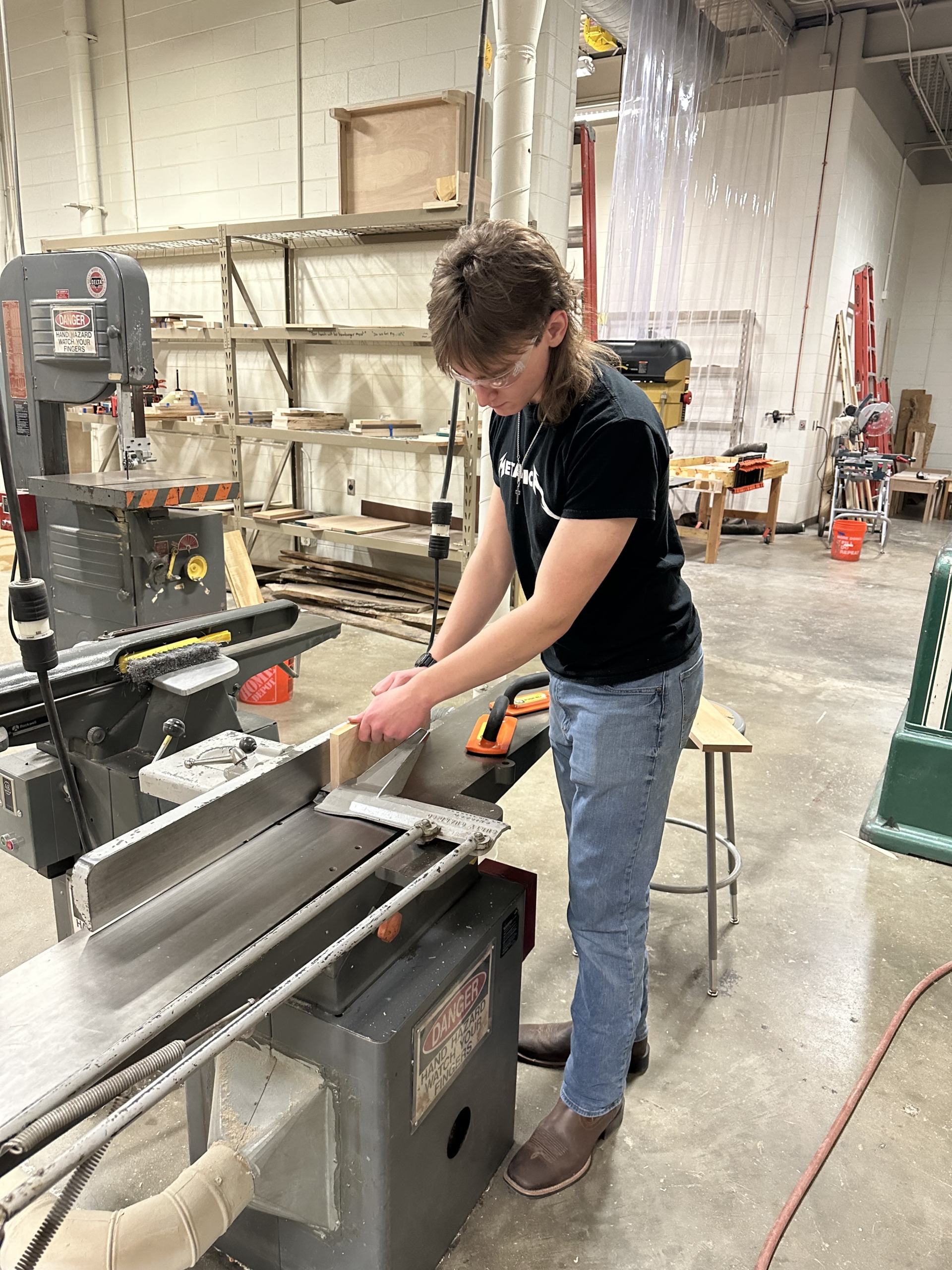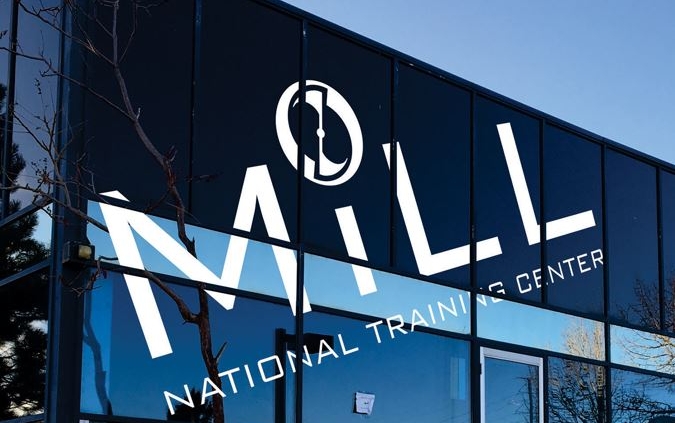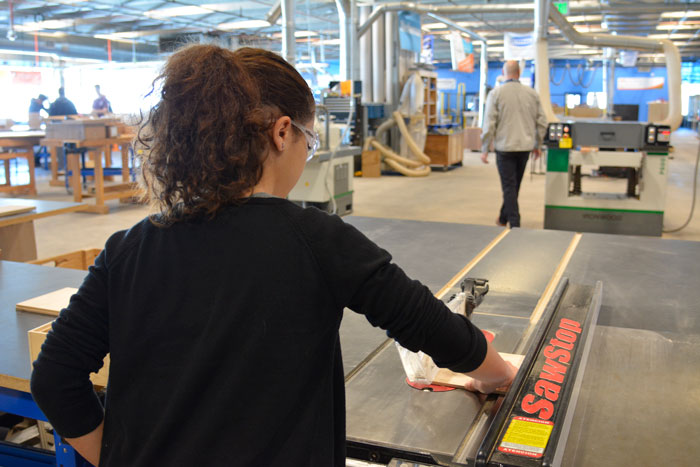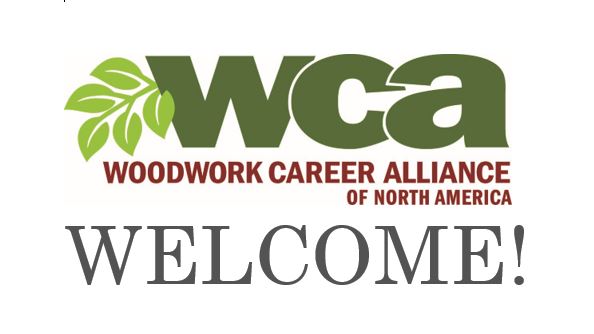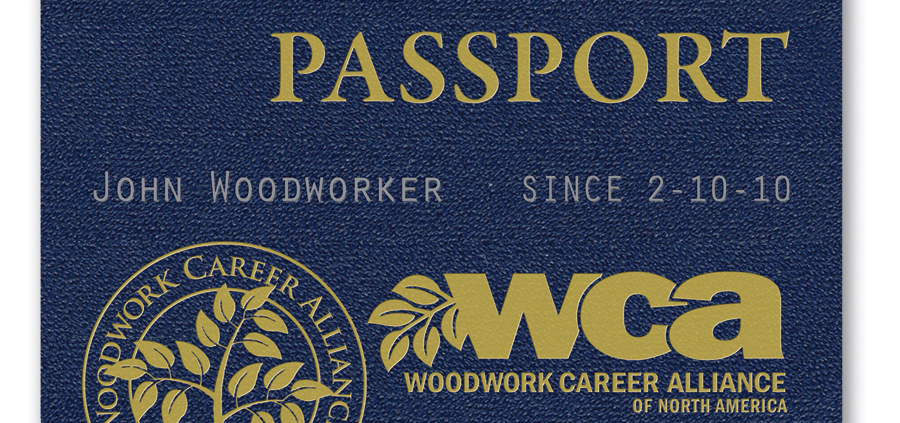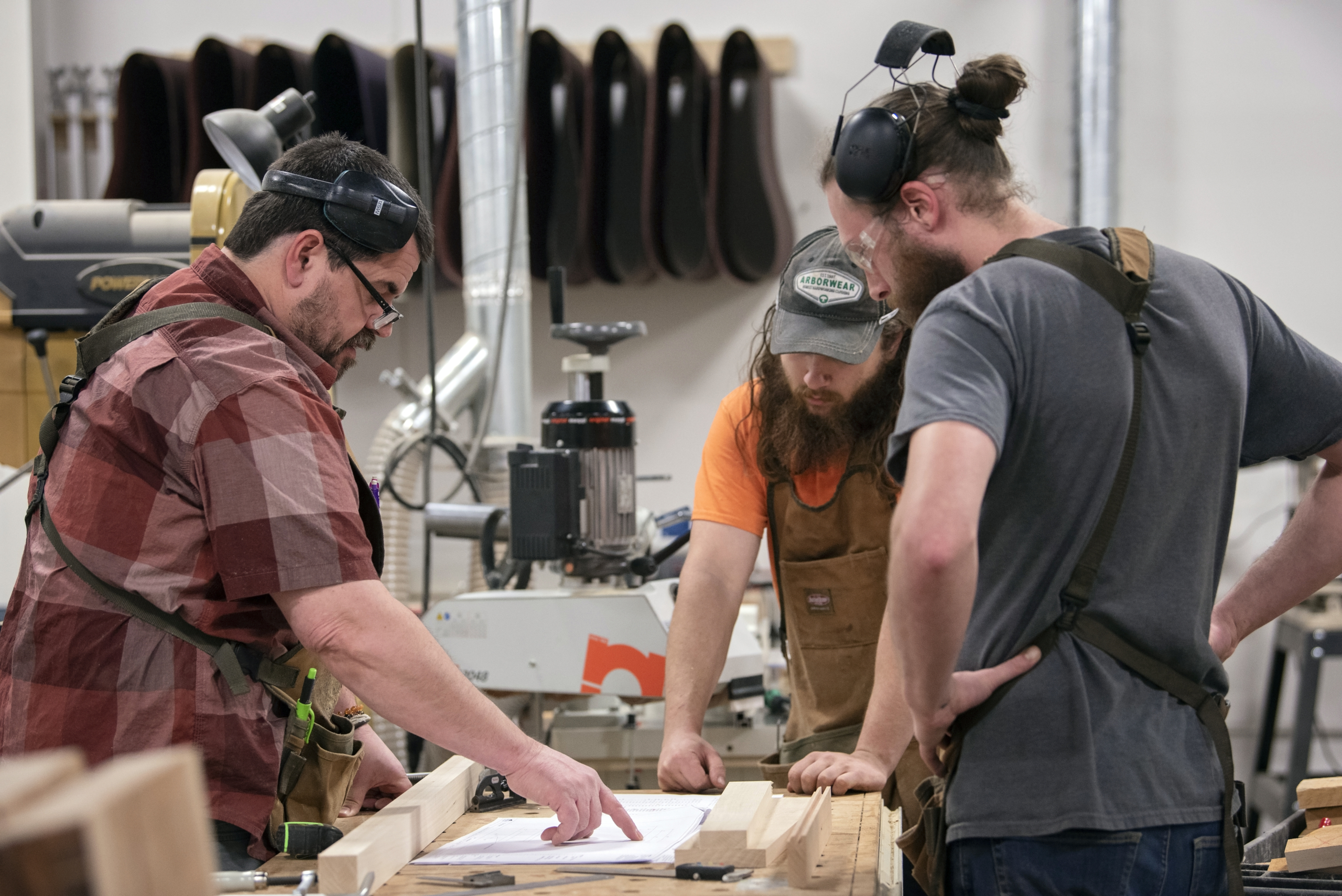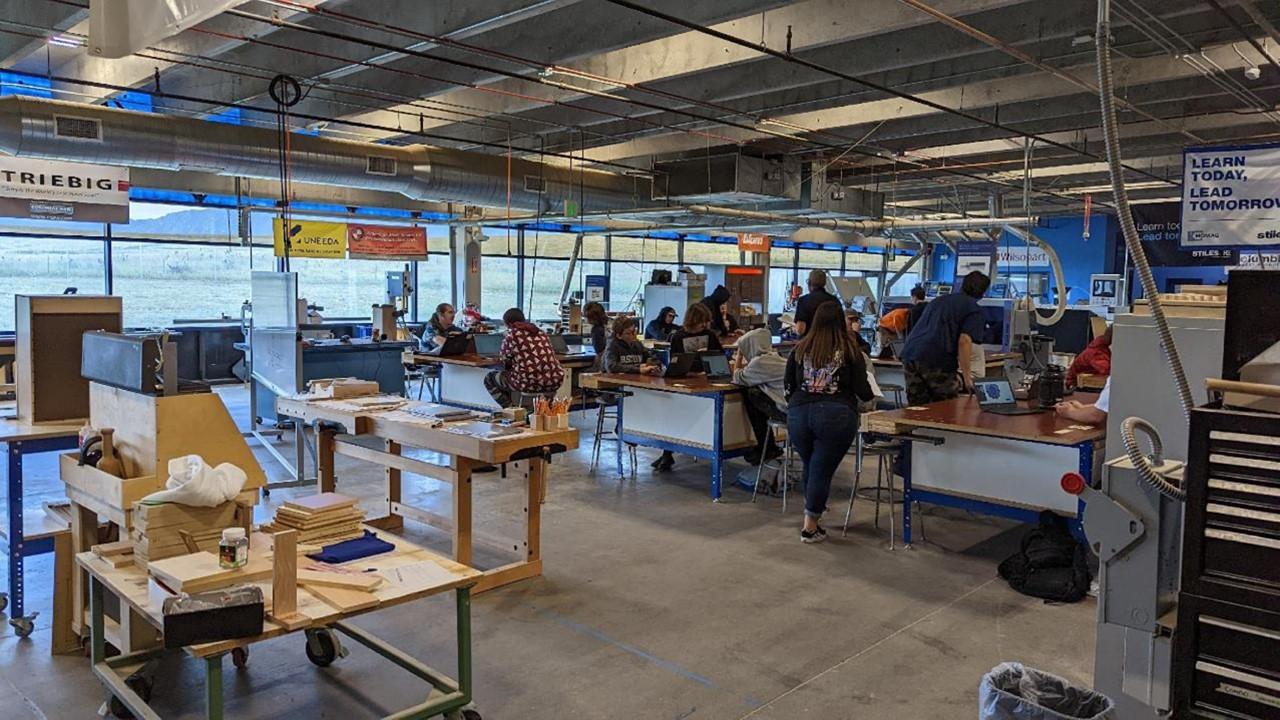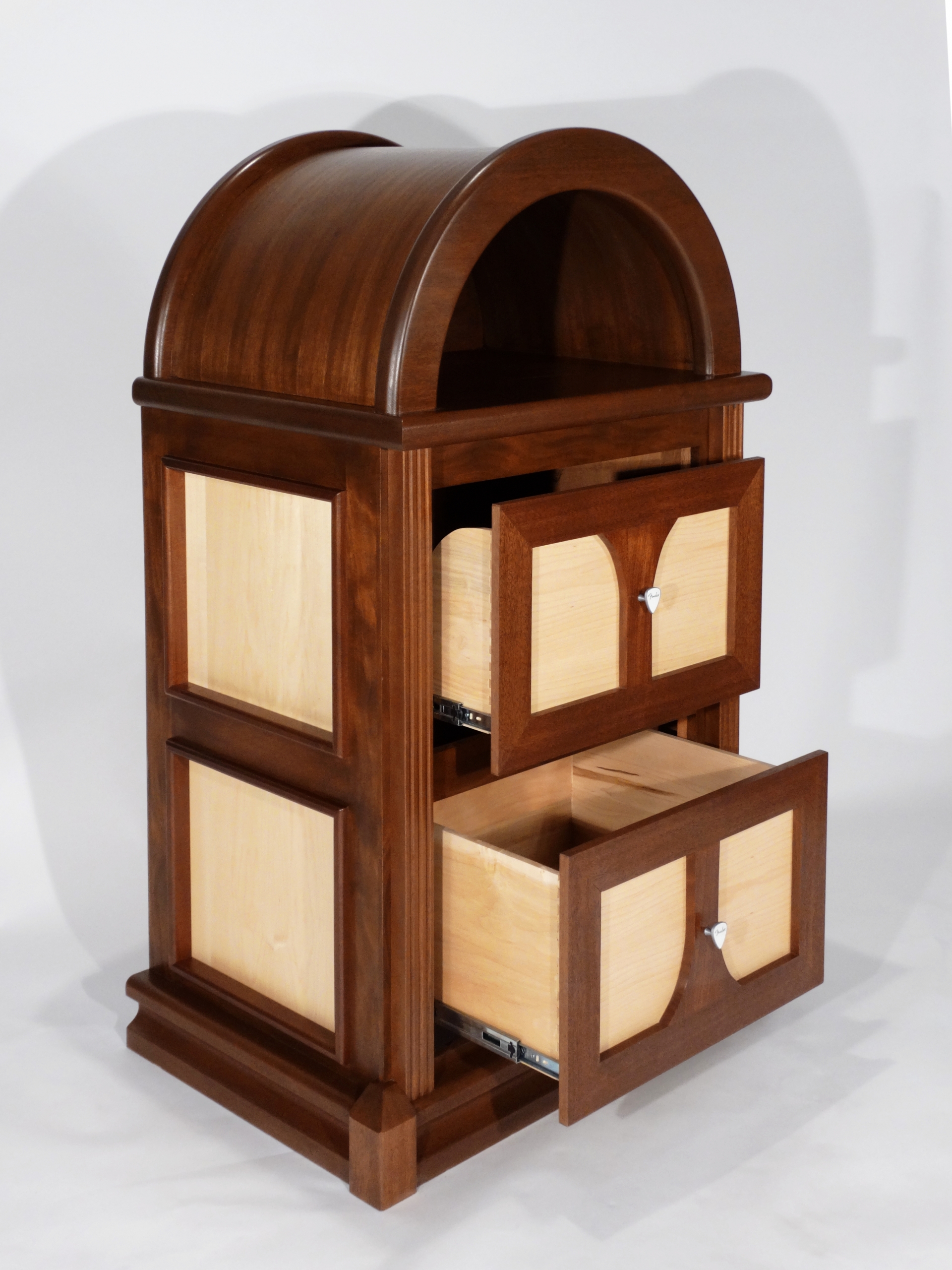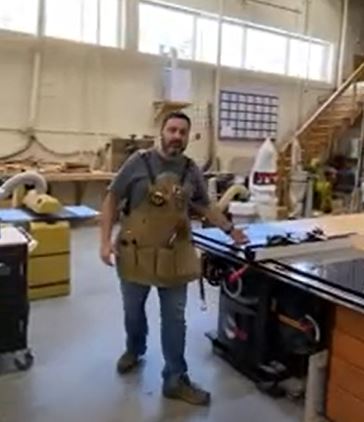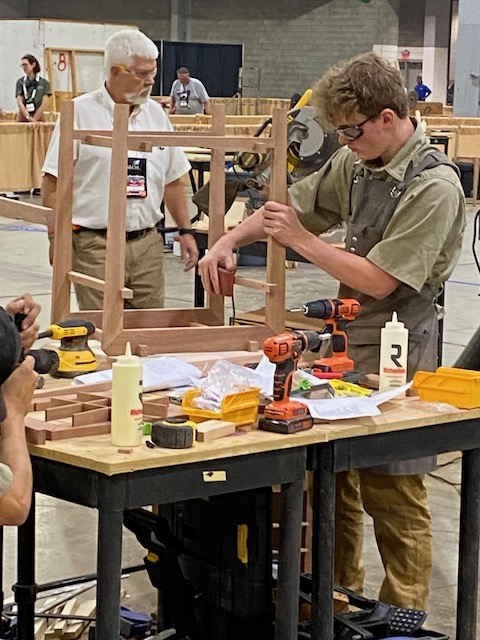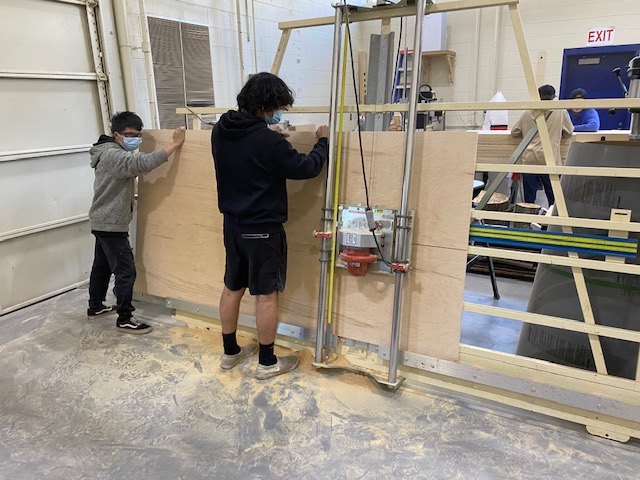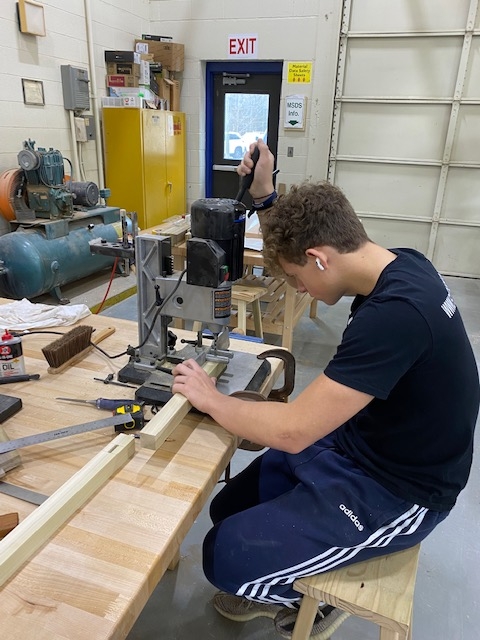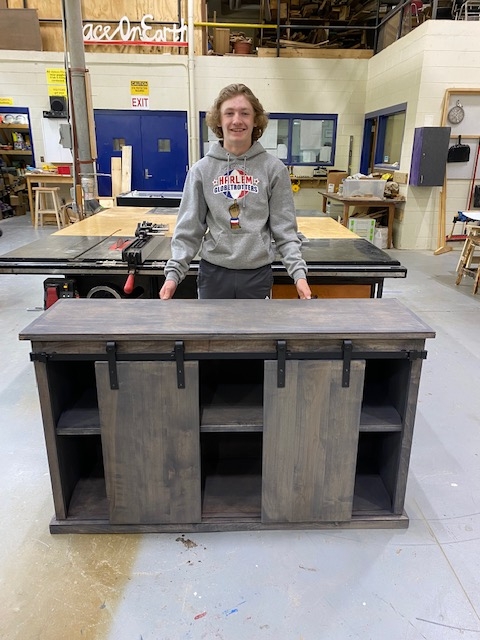How Fox Valley Tech Preps Students for Woodworking Careers
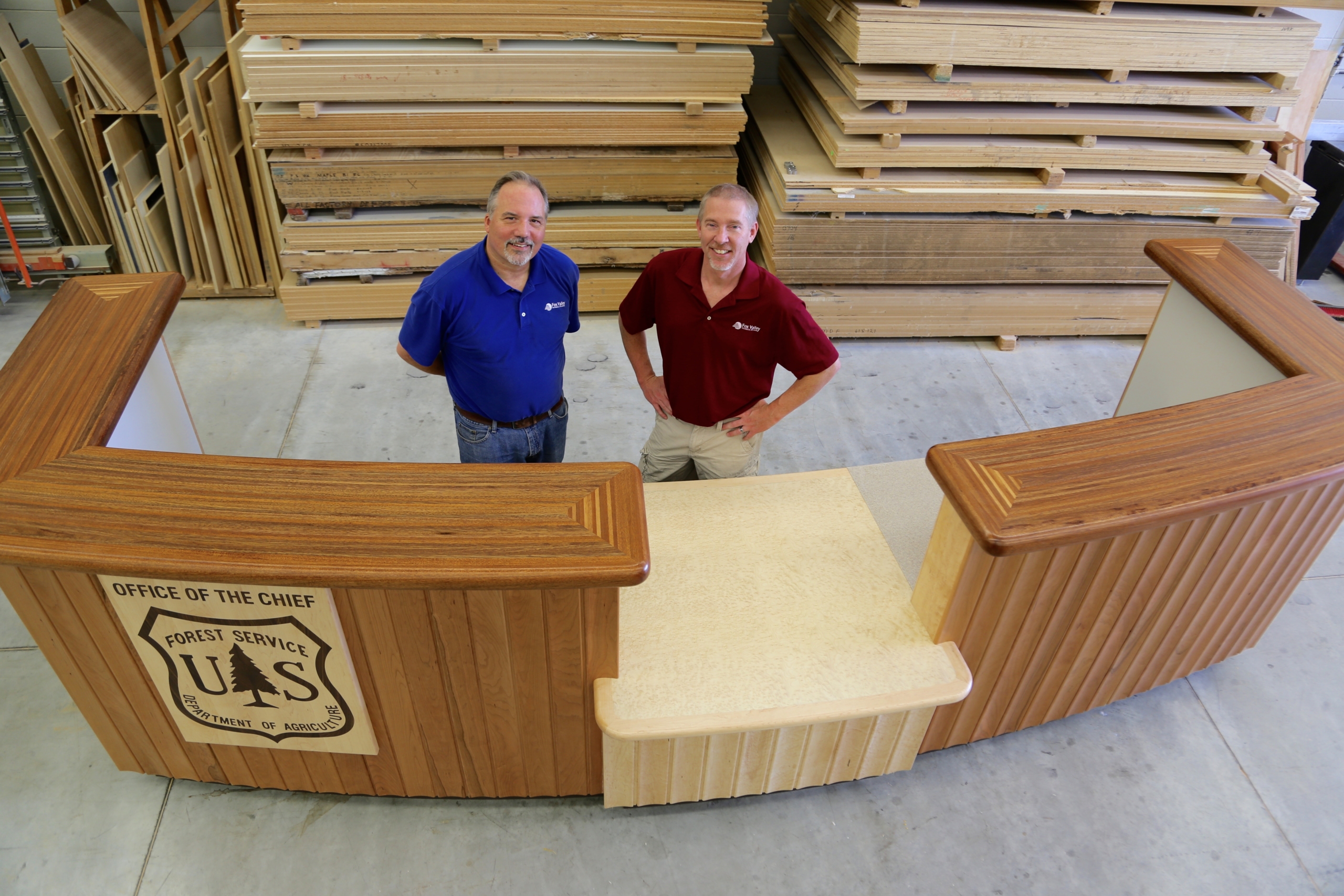
Mark Lorge, left, and Glenn Koerner are the instructors of Fox Valley Technical College’s Wood Manufacturing Technology program.
The Wood Manufacturing Technology program at Fox Valley Technical Center (FVTC) in Oshkosh, Wis., has a rich 41-year tradition of graduating students ready to embark on successful careers.
The nationally-recognized program also has a long affiliation with the Woodwork Career Alliance of North America.
Jerry Finch, who established FVTC’s woodworking program in 1982, was a founding member of the WCA Board of Directors in 2007. Finch served as lead woodworking instructor at FVTC until he retired in 2006. Since then, the program has been led by Mark Lorge, who worked alongside Finch beginning in 1995. Today, Lorge is ably assisted by Glenn Koerner, who came on board after Finch departed.
About FVTC’s Woodworking Program
Fox Valley’s woodworking program is an immersive program that meets all day, five days a week for a full year. The goal is to make sure that the students who earn their Technical Diploma have the knowledge and skills to jump-start their careers.
Students are trained to safely use everything from portable power tools and classic woodworking equipment through programming and operating CNC machinery. They also learn how to read blueprints, maintain tools and work as part of a team.
“We take a tag team approach,” Lorge says. “Glenn and I are interchangeable throughout the course. We both bring different experiences to the course, so our students go out with a well-rounded knowledge of the industry. We start out with the very basics. We show how a table can make a rip cut, cross cut, dado, rabbet, miter or a bevel. We then explain how to use a table saw for joinery purposes and how it can actually be used as the only machine to create a piece of furniture.
“Every unit builds on the previous unit,” Lorge continues. “As we get deeper into it, we start looking at processes. While our program is initially instruction-driven, the students take that knowledge we’ve given them to do a specific activity. As we progress throughout the year, the course becomes less instructor driven and more student driven. They apply the knowledge that they have learned doing activities and extrapolating that knowledge into building something that is more complex.”
“We really try to mimic what it’s like to be in a cabinet shop so that the students get an idea of the pace and what it’s like to work all day long in this environment,” Koerner says. “They’ll run into roadblocks where someone might be on the machine they want to use, so they’ll have to redirect themselves, stay on task and find a different process to work on. In our program outcomes, we help students learn to anticipate process errors and take corrective actions. I think that’s an important part of what students learn here. Something might go wrong and you have to figure how to recover from that and turn it into something positive. I think the pace and the environment really sets the student up for what to expect when they graduate and start their first job in the industry.”
Koerner adds that safety training in a core component of the program. “A big part about safety is teaching them where the dangers lie so that they don’t put themselves in a bad situation.”
A Wood Products Powerhouse
Oshkosh is located in east central Wisconsin, about 80 miles northwest of Milwaukee. The area is a veritable powerhouse of wood products manufacturing. The wood supply chain stretches from hardwood timber harvesting and sawmilling through a plethora of secondary woodworking companies of all sizes and types.
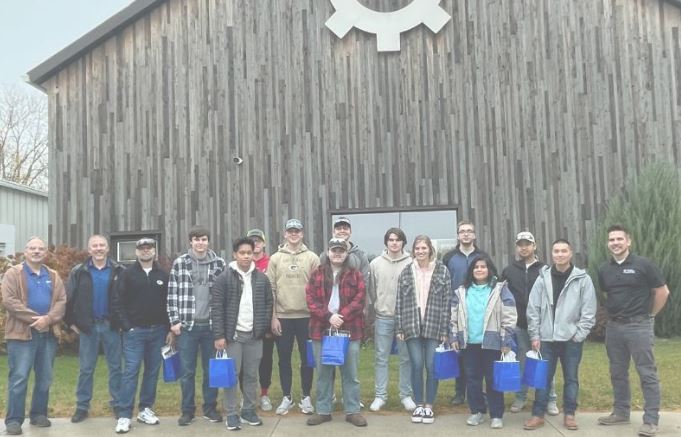
FVTC students toured Concept Works, giving them an opportunity to see the inner workings of a custom wood products company.
“The state of Wisconsin has such a wide variety of opportunities in secondary wood processing,” Lorge notes. “The last I heard the state has around 50,000 people employed in this industry. There’s everything from cabinets and furniture to yachts and aircraft interiors, plus commercial restaurant interiors, windows and doors, and more. Most of that variety is within 30 miles of where we are. Because there are so many diverse opportunities, we really try to give our students a broad-based education so that they can choose where they want to go and still make a positive impact for their employer.”
Lorge and Koerner, building on Finch’s pioneering work, continually cultivate new and strengthen existing relationships with local wood product companies. The most obvious beneficiary of these efforts are the students who can each count on receiving multiple job opportunities upon graduating.
Examples of FVTC’s relationships with industry include:
- The program is vetted by a 14-member advisory panel, mainly made up of representatives of small and large woodworking companies, plus industry suppliers. The board’s input helps ensure that the program’s curriculum remains in alignment with industry’s needs.
- Lorge has been a member of the Wisconsin Chapter of the Architectural Woodwork Institute since 2009. AWI membership provides regular networking opportunities with representatives of woodworking companies and suppliers, and also helps keep Fox Valley Technical College top of mind as a go-to-source for well=trained woodworkers ready to hit the ground running.
- Over the years, FVTC has received a treasure trove of donations including exotic veneers, hardwood plywood and other valuable materials that allows the program to stretch its supply budget.
- There is no shortage of companies willing to provide tours of their shops to students. Last fall, FVTC students toured ConceptWorks, a manufacturer of architectural millwork, retail fixtures and showroom and trade show displays based in Elkhart Lake, Wis.
“ConceptWorks is just one of many great manufacturers who have opened their doors for our students to tour over the years,” Lorge says. “We have also toured other high-end architectural woodwork shops such as T.J. Hale and Glen Rieder, as well as hardwood lumber mills like Kretz Lumber and Granite Valley Forest Products, and tooling suppliers Vortex and Great Lakes Custom Tool. We’ve also visited Gulf Stream Aviation, which makes custom wood interiors for private jets, and Burger Boats. It’s a really eye-opening experience for our students to go to a place that makes ultra=luxury yachts. One of our graduates is working on a bed for a yacht that is a quarter of million dollars.”
Lorge adds, “Students come to our program thinking they are going to make kitchen cabinets. These tours make them aware that there are lots of opportunities.”
Hands-on, High-Tech Open House
Just as industry looks to FVTC to recruit graduates, FVTC looks to area high school programs for potential new students.
Since 1988, the FTVC Wood Manufacturing Technology program has hosted its Hands-on, High Tech open house. This year’s event is scheduled for April 18 and 19.
“We have had upwards of 700 students come through our woodworking lab over the two days,” Lorge says. “We’re in the process of inviting around 275 instructors from every high school within about a 100-mile radius of Oshkosh. My goal is 1,000 students.”
“Each group that comes through is greeted by Glenn, who gives them a quick overview of our program and what they can expect to happen for the day,” Lorge says. “Then we will lead them on a tour where they actually make a finished product that they can take home. Last year we made a desk lamp.
“The first stop for the product we plan to make is an Altendorf sliding table saw that the vast majority of high schools don’t have,” Lorge continues. “These students are going to look at this saw and go, ‘Wow!’ Our students will do a demonstration and then put a student on it and safely guide him or her through the operation. They’ll make a few cuts and then they’ll go to the next station.
“It’s really fun to watch how our students’ confidence levels grow throughout the two days. At first, they are usually not comfortable talking to groups. But by the end of the second day our students have gone in a straight upward incline and realize that they know what they are talking about. The confidence boost that our students get is immeasurable. It’s one more thing that helps make them ready for their first job.”
Speaking of graduates taking their place in the woodworking industry, Koerner tells this story.
“We ran into a graduate at IWF last year who was with the owner of the company and also another person on her team. She said something that left a lump in mine and I think Mark’s throats. It was really touching. She said, ‘Prior to taking your program I was sweeping the shop floor and now after taking the program I’m supervising the shop floor.’ She said she learned so much from the program that it really advanced her career and it was touching for both Mark and I to hear that and how much impact we had on her life and her career.”
“It’s really nice for us to be recognized for the quality of the students that we are putting out,” Lorge adds. “Out reputation is all we have and we work really hard to protect it.”


